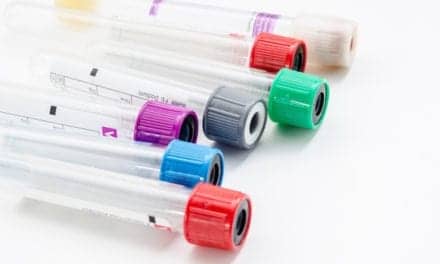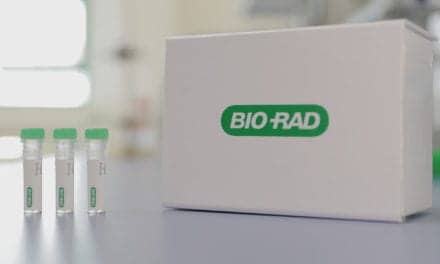Two tests from Roche Molecular Diagnostics, Pleasanton, Calif, for the BK virus (BKV) and Epstein-Barr virus (EBV), are now available for use on the company’s automated Cobas 6800 and Cobas 8800 systems in countries that accept the CE mark. Both tests provide ready-to-use precalibrated reagents that meet World Health Organization (WHO) standards for testing consistency, allowing patient results to be compared across laboratories and institutions.
The tests provide reliable, standardized results to help clinicians manage the risk of infection and improve treatment of severely immunocompromised transplant patients. Healthcare professionals can use the tests to assess whether transplant patients are at risk of developing disease from these pathogens, which can contribute to organ rejection.
“These two new in vitro diagnostic tests provide transplant patients with peace of mind that their doctors have access to best-in-class monitoring tools so that treatment plans can be adjusted as necessary,” says Mario Torres, head of Roche Molecular Diagnostics. “The tests meet World Health Organization standards, and will provide critically needed and comparable results across institutions to increase the quality of care.”
Roche now offers a comprehensive testing solution that permits critical transplant testing for BKV, cytomegalovirus, and EBV, from a single sample on the Cobas 6800 and Cobas 8800 systems. The new molecular diagnostics enhance laboratory workflow by running on the automated systems, which offer a comprehensive menu of microbiology, transplantation, virology, and women’s health assays.
Both Cobas BKV and Cobas EBV are real-time polymerase chain reaction tests with dual-target technology that provides quantitative accuracy and guards against the risk of sequence variations that may be present in the viruses. The Cobas BKV test has a range of 21.5 IU/mL to 1E+08 IU/mL, and the Cobas EBV test has a linear range of 35 IU/mL to 1E+08 IU/mL.
By minimizing variability and complexity, the tests offer an alternative to lab-developed tests, reduce workload, and alleviate risk for laboratories. The tests provide reproducible, high-quality results for clinical decisionmaking to support the goal of standardizing results across institutions.
BKV is a member of the polyomavirus family that can cause transplant-associated complications, including nephropathy in kidney transplantation and hemorrhagic cystitis in hematopoietic cell transplantation. Infection can occur early in life, with no symptoms. The virus can remain inactive in the kidneys throughout life. BKV can reactivate during an immunocompromising situation such as solid-organ transplantation.
EBV is a member of the herpes virus family and has been associated with a range of cancers in transplant patients, such as posttransplant lymphoproliferative disorder (PTLD). Once infection with EBV occurs, the virus establishes itself in a latent form and can remain in the body. Most people harbor EBV with no long-term clinical ramifications.
The Cobas 6800 and Cobas 8800 systems provide up to 96 results in about 3 hours. In an 8-hour shift the Cobas 6800 system delivers 864 results, while the Cobas 8800 system delivers 1,824 results. Both make it possible for labs to perform up to three tests in the same run with no presorting required. The Cobas 6800 system offers up to 8 hours of walkaway time, and the Cobas 8800 system provides up to 4 hours of walkaway time.
For more information, visit Roche Molecular Diagnostics.
Featured image: The BK virus. Illustration courtesy Roche.






